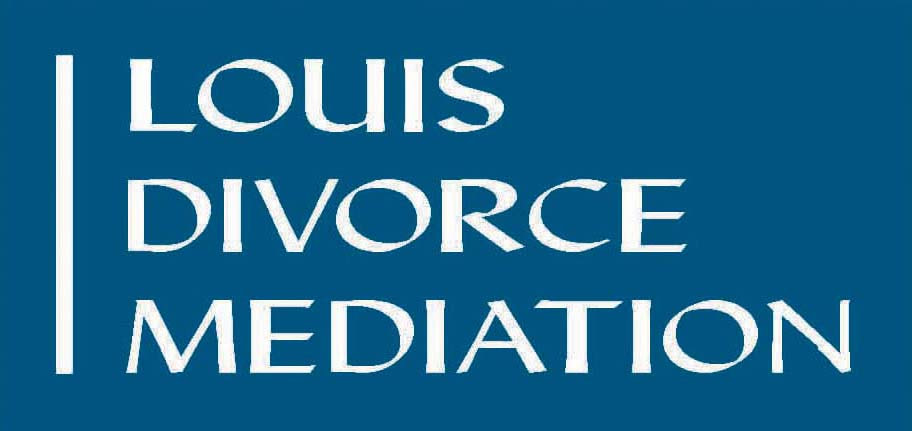Louis Divorce Mediation ~ Online and In-Person Mediation in Chicago
|
For many of you, thinking about the word “budget” may be enough to give you a headache. Maybe that’s why, in a Gallup Poll conducted in 2013, only 30 percent of those surveyed said that they have a household budget.
If you don’t like working with numbers (and there are a lot of people like you out there), putting together a budget may seem like being asked to build a rocket ship. Fortunately, I do like working with numbers, and I’ve had many years of experience making sense of financial situations. I bring that expertise to my role as your divorce mediator. What’s the problem? In some households, not having a budget may not pose a problem. After all, if there is enough income to pay the bills, and no one is an extravagant spender, then no harm is done. In other families, however, the lack of a budget can result in overspending, which usually translates into either drawing on savings or going into debt to make ends meet. Unfortunately, I find that most client debt arising from overspending goes on a credit card. That solution tends to inflict the highest interest rates. Overspending may arise from lack of planning, and no plan may signify lack of communication. It’s little wonder that many marriages and relationships break down over money. When households are spending more than what is earned, this creates a stressful environment. Overspending may arise from lack of planning, and no plan may signify lack of communication. It’s little wonder that many marriages and relationships break down over money. Map out your financial future. In divorce mediation, budgets can be crucial. The reason for this is very simple—as couples separate and transition from living in one household to living in two households, the combined expenses (particularly those related to housing) will increase significantly. And this is usually happening without the benefit of any additional income to cover the new expenses of a second living circumstance. Families that were challenged to cover expenses when living together are stretched out even more with the added dynamic of a second household. As a mediator, I work with clients to help you talk about your transition from being together to living separately. And this requires planning, whether it relates to dividing assets and debts, parenting children in two homes, or coming up with financial support arrangements so that both partners can live as sustainably as possible in the future. As we look to the future, we use the budget as part of the plan that covers expected spending and the income available to each spouse/partner going forward. The budget is a starting point for mapping out each person’s financial future on a month-to-month basis. Budget for your children’s needs. In the case of parents, another important use of a budget is to allow you to determine, in a collaborative and cooperative fashion, what expenses are directly associated with your children. While some expenses are not easily allocated (housing costs and groceries), those that directly benefit children can be identified and estimated. This becomes a useful tool for crafting mutually acceptable plans for parents in providing for children’s needs going forward. Finally, budgets can serve as a barometer to measure the outcome of direct payments of child support and spousal maintenance for those clients who opt to use state guidelines as a starting point for negotiating maintenance and child support. We look at each spouse’s/parent’s budget and then account for payments of child support and maintenance from one parent to the other. In this way the impact on each’s sustainability can be determined, which in turn can inform adjustments that are more likely to be seen as acceptable to both. Avoid risk—Make a plan. Divorce mediation is a series of facilitated conversations that entail a transitional journey into “uncharted waters.” Taking this trip without any kind of mapping is a risky choice. However, by doing the work of preparing a budget together, we can better identify the challenges of the future and discuss ways to manage them as best as possible. Coming Soon: Part 2—Tools and Tips for Budgeting
0 Comments
I’ve been thinking a lot about these words lately--obligation and opportunity.
It started in a divorce mediation session about a month ago. The clients were discussing the concept of right of first refusal in their parenting plan. In many parenting time schedules, the parents agree that, if one parent is not available during his/her scheduled parenting time (because of a work commitment in the evening or on a weekend, for example), that parent agrees to offer the other parent the chance to have unscheduled time with the child (or children). So in this discussion, the mother observed that one could look at this concept as either an obligation—one parent has to contact the other parent and the second parent could rearrange his/her life to be available—or an opportunity--one parent offers the other parent extra time with the children). In that moment, I sensed that there was a pearl of wisdom in this casual observation. And so, with further reflection, I focused on what it feels like to be obligated to take an action. Is being obligated like being controlled (often an underlying cause for a spouse to want a marriage to end)? If seen as an extension or continuation of control or coercion, of course there will be resistance and push back. Even the suggestion can create another wall between the spouses. Viewing it this way, past resentment can then impede progress in moving forward with their separate lives. On the other hand, what about shifting this view to seeing new circumstances as an opportunity?
Through this lens, opportunity can be a gift to and from each other, given with positive intent and received with acknowledgement. I am reminded that mediation, with its focus on the future and all that it can offer to resolve uncertainty, is a process that can explore new opportunities as a bridge to future possibilities. As I consider these differing views, I am reminded that mediation, with its focus on the future and all that it can offer to resolve uncertainty, is a process that can explore new opportunities as a bridge to future possibilities. |
Categories |
David Louis, MPA, CDFA® • Louis Mediation Services - Chicago
|
Chicago Office: 1700 W Irving Park Rd., Suite 105, Chicago, IL 60613
Northbrook Office: 555 Skokie Blvd., Suite 500, Northbrook, IL 60062 |
Copyright © 2024



 RSS Feed
RSS Feed